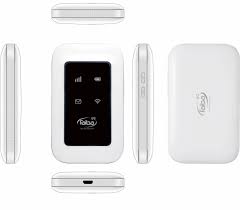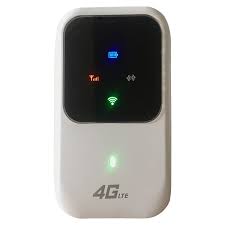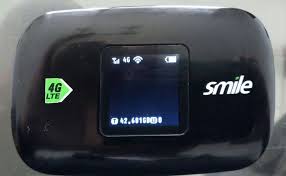As voice services reach their peak, data have become the new apple the service providers are jostling to have strategic edge over the competition in its offering. When the mobile phone networks began to offer phone services the battle for market share was fierce. While MTN seemed to have captured the larger chunk of the voice market, the race for data services leader had continued with each network operator providing robust networks powered by the best technology to offer cutting edge users-experience.
As in voice service, faster, robust and seamless data connection, download and upload, output are key to users, and the market clincher is surely the network that offers them. Data connectivity is enabled on different platforms, but on the 4G networks, the Long Term Evolution (LTE), also known as 4G LTE is the standard set for high-speed wireless communication for smartphones, tablets, netbooks, notebooks and wireless hotspots terminals in Nigeria. 4G LTE is more than 10 times faster than 3G; 4G LTE averages up to 1,000Megabits per second (Mbps) while actual use may be in the region of 100 Mbps.
While Smile, Spectranet, Swift and iPNx were at the forefront in offering “4G LTE” in Nigeria, mobile network operators (MNOs) such as Airtel, Glo, MTN, nTel joined the race, much later.

But according to Factsmill Consulting
Smile has continued to be market leader in many ways; in wider coverage amongst the Internet Services Providers on the 4GLTE platform, reaching Lagos, Abuja, Port Harcourt, Ibadan, Kaduna, Onitsha, Benin and Asaba, and comparing favourably with the MNOs in coverage and customer reach.
It is on record that Smile was the first to launch first commercial 4G/LTE network in West Africa in Lagos, Nigeria in March 2014 and has continued to build on that lead. But others such as Spectranet, Swift, iPNX, GLo, Airtel and nTel have since followed with one version of 4GLTE or the other.
Smile is not only the first to launch 4GLTE, it was also the first true 4G LTE service provider in Nigeria in a country were many providers pretended, for many years, to be offering data on 4GLTE. Even on the data plan services, it competes favourably having the edge with its added technical capabilities.
As in the case of every late comer catching up with market leaders is often an arduous task. Thus, the rollout of the Smile 4GLTE network has had a significant impact on the user experience in Nigeria, more so as it continues to update its technical capabilities and data plan. Its 4GLTE offers faster download and upload speeds that considerably improve internet experience.
T
he Consulting firm said In assessing the best mobile data provider and its performance experience the focus is majorly on the product types with particular reference to Routers and MIFIs, which are the gadgets from which signals, emit to service customers’ needs. Even in this a careful analysis of the various providers would show that Smile’s SMifi pocket-sized wireless router that’s 4G LTE compliant and connects devices such as Laptops, smartphones and tablets seamlessly to their LTE network leads.

Routers and Mifi’s are of various types, and that accounts for their performance levels. For instance what are the model, item height and width, wireless type and depth of the routers or the Mifis. What is their weight, control, power supply, user connection, operating system (OS), and number of connections, range, modem Speed, frequency, speed, Security and antennae capacity?
A mobile Wi-Fi, (MiFi), allows you to connect multiple devices like smartphones and laptops to a single 4G data SIM and get online anywhere at any time as long as you have a steady telecom signal.
Unlike your smartphone’s data capabilities, Mi-Fi routers are designed with strong signal capabilities to the point that your device can rarely slip to 2G unless in a remote area. Derived from the term WiFi router, a Mi-Fi simply implements a minimal router interface unlike the rest of the two routers.
On the other hand Wi-Fi router, is a mid-sized console that usually mounted in a single stable place or corner pumping strong signals to all connected devices.
Although the device is relatively bigger as compared to its mobile version, the gadget implements multiple features that are simple Mi-Fi can’t pull off for a stable internet connection.
However, in most cases, the device is never gifted with a SIM slot as compared to the Mi-Fi router but instead distribute internet connectivity to connected devices from a Mother wired router.

A comparison of the routers of four data services provider gives an indication of the leading providers in Nigeria and helps you make an informed choice.
COMPARISON OF THE ROUTERS
| ROUTER | AIRTEL | SMILE | GLO | SPECTRANET |
| Model | HUAWEI B310 | SM-B940 | ||
| Item Height | 50mm | 200mm | 58mm | 58mm |
| Item Width | 88mm | 157mm | 97mm | 97mm |
| Wireless Type | 802.11 b/g/n | 802.11bgn | 802.11bgn | 802.11bgn |
| Depth | 28mm | 56mm | 18mm | 18mm |
| Weight | 300g | 483g | 77.1g | 77.1g |
| Control | Power Buttom, Reset Buttom, WPS BUTTOM | Power Buttom, Reset Buttom | Power Buttom, Reset Buttom, WPS BUTTOM | Power Buttom, Reset Buttom, WPS BUTTOM |
| In The Box | All SIM Support Hotspot 4G, All SIM Support Dongle 4G, All SIM Support Router 4G | |||
| Power Supply | DC 12 V, 1 A | 5200mAh | DC 12 V, 1 A | |
| User Connection | 4 LAN Ports/1 WAN Port | |||
| OS | Windows 7, Windows 8, Windows 8.1, Windows 10, Mac OS X 10.7, 10.8, 10.9, 10.10, 10.11 or Latest | Windows XP SP3, Vista, 7, 8, MAC | Windows 7, Windows 8, Windows 8.1, Windows 10 (does not support Windows RT), MAC OS X 10.7, 10.8, 10.9, 10.10 and 10.11 | Windows 7, Windows 8, Windows 8.1, Windows 10 (does not support Windows RT), MAC OS X 10.7, 10.8, 10.9, 10.10 and 10.11 |
| Features | This HUAWEI B310 Wi-Fi Strength is Higher Great |
– IP pass
through – Port Forwarding – Remote access – Data usage statistics (showing timestamp , rx and tx) – Data usage cap – DHCP to use for time setting . – web/ url filter – Network parameters , like rsrq, rsrp ,pci , sinr: – URL Filter – Firewall – Parental Control – Speed Allocation – MAX Filtering – USB port – Cloud hotspot compatibility via developed user interface | ||
| Number of Connections | 32 Wi-Fi + 1 LAN | 16 – 32 DEVICES | 32 Devices | 32 Devices |
| Range | 100 m | 27M | 100m | 100m |
| HSDPA/ HSUPA/ HSPA+ | LTE TDD cat 6 | |||
| DL 150Mbps | ||||
| UL 50Mbps | ||||
| LTE TDD cat 4 | ||||
| DL 220+Mb/s | ||||
| UL 11+Mb/s | ||||
| DSL Modem Speed | 100 Mbps | 100 Mbps | 100Mbps | 100Mbps |
| LAN/WAN | 100 | 100 | 100 | 100 |
| Frequency | 2.4 GHz | B7/B20 | 2.4 GHz | 2.4 GHz |
| Chipset | ZTE | |||
| Antenna | Internal Antenna | 4 Antennae (2 WiFi, 2 LTE) | Built-in LTE/UMTS/GSM and WLAN high gain antenna | Built-in LTE/UMTS/GSM and WLAN high gain antenna |
| Speed | 150 Mbps Speed | 150 Mbps Speed | Superior signal quality, Higher signal strength | |
| Security | wpa, wpa2, wpa2-psk | In-built URL web filters for web-site restriction | ||
| Antennae Capacity | Omni Directional | High gain directional antenna |
COMPARISON OF MIFIs
| MIFI | AIRTEL | SMILE | GLO | SPECTRANET |
| Model | E5573Cs-609 | SM-MF833Z | Huawei E5773cs-933 | MF920W |
| Voltage | 4.35 Volts | 4.35 Volts | 120238 Volts | |
| Dimensions | 9.7 x 5.8 x 1.3 cm | 93.6 X 59.5 x 14.8 mm | 9.7 x 5.8 x 1.3 cm | 105.6 X 64 X 14.3mm |
| Weight | 77.1 g | 80g | 77.1 g | |
| Battery | 1 Lithium ion batteries required. (1500 mAh) | 3000mAh (8-12hrs) | 1500mAh | 2000 mAh (Non-removable) |
| Average Battery Standby Life (in hours) | 7 Days | 7 Days | ||
| Battery Charge Time (in hours) | 2 Hours | 2 Hours | ||
| Included Components | Device, Battery and Cable | Device, Battery and Cable | ||
| User Connection | NA | |||
| OS | Windows 7 – 8.1, Windows 10 (does not support Windows RT), MAC OS X 10.7, 10.8, 10.9, 10.10 and 10.11 with latest upgrades | Windows XP SP3, Vista, 7, 8, MAC | Windows 7, Windows 8, Windows 8.1, Windows 10 (does not support Windows RT), MAC OS X 10.7, 10.8, 10.9, 10.10 and 10.11 |
Win10, Win8, Win7, Windows
XP, Vista, Linux, Mac OS |
| Features |
– Ability to
hide and display password on LCD screen – Ability to view data usage statistics of each connected device – Shows the upload and download stats for each device – Shows the IP address of connected device – Shows the duration of connection of each device – Allows the customer block connected devices as may be required – Scrambled Security password per device for both wifi and the web user interface – Access to network parameters (PCI ,SINR,RSRP, RSRQ, E-ARFCN) – Water damage indicator – Charging Cut off in built – A keyring and strap(to reduce damage via falls and as a value add) | |||
| Number of Connections | 10 (Wi-Fi) + 1 (USB tethering) | 8-10 users | 15 Devices | 10 Devices |
| Range | ||||
| Screen | LCD |
4 LED Light Indicators (Battery, WiFi, SMS, Signal) | ||
| HSDPA/ HSUPA/ HSPA+ | LTE FDD cat 4 | LTE FDD cat 4 | Cat4 | |
| DL 150Mbps | ||||
| UL 50Mbps | ||||
| LTE TDD cat 4 | ||||
| DL 130Mb/s | ||||
| UL 35Mb/s | ||||
| Frequency | LTE: FDD B1/B3/B5/B8/B26; TDD B40 (2300–2395 MHz); DC-HSPA+/HSPA+/HSPA/UMTS: B1/B5/B8; EDGE/GPRS/GSM: B2/B3/B5/B8; WLAN: 2.4 GHz | B7/B20 | B1,B3,B8 and B28 bands 700Mhz,800mhz,900mhz,1800mhz B28 band and 700Mhz | |
| Chipset | ZTE | |||
| Antenna | Built-in | Internal | Built-in |
Rating
The firm said from
the technical indicators, based on the parameters used in its assessment shown in the tabulations above, the ratings of the four networks under review are as follows: Smile 71%, Airtel 68%, Glo 64% and Spectranet 63.5%. Evidently, the Smile 4GLTE router capabilities, coupled with its competitive data plan, network’s wider area coverage, and customer relations and service, has the edge, in so many ways, offering the customer the best choice for much needed data experience.











